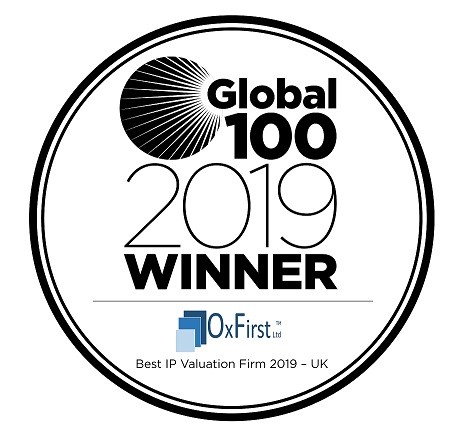The adequate valuation of IP plays a crucial element in vital markets for technology. Its applications span from taking adequate investment decisions, to buying and selling IP, determining the value of a licensing rate, formulating an adequate IP business strategy and determining which IP is worth spending time and energy on and which is best to be anandoned.
An IP valuation has relevance as early on as the filing stage as it is important to determine the future growth potential of a patented technology from the outset. In spite of that, many do not have the adequate information and knowledge on how to value patents. There is also a lack of understanding as to the role an IP valuation can play in a merger or acquisition.
Says, Dr Roya Ghafele, Director of OxFirst. An IP valuation allows to turn a legal right into an economic asset. By associating legal rights in a technology with monetary returns, it becomes possible to significantly improve the management of technology. As such, IP bears the potential to become the currency of the knowledge based economy.‘
The major challenge does not seem to be that intellectual property cannot be valued. The challenge is that the market is rather ignorant about IP valuation. Current accounting standards that allow to only partially reflect the value of patents do not make things easier. This leads to market inefficiencies, where valuable technology sits gathering dust, while entrepreneurs and investors alike are not able to scope potentially attractive IP business opportunities. OxFirst has successfully committed itself over the last decade to change this.
An IP Valuation helps technology entrepreneurs unleash their potential
IP plays an increasingly fundamental role in corporate strategy. It allows to start a business, maximize revenue and attract new investment. Drivers of the commercial value of intellectual property can be grasped by looking at the IP as a business resource in and by itself.
Does the IP help the firm differentiate itself from competitors? Is it possible to deliver a service or good faster, better or cheaper? These are just some of the questions that can be addressed in the process of an IP valuation. Understanding how IP relates to corporate performance is central to an IP valuation and allows smart managers to optimize their business strategy.
A firm that has understood how to best exploit its intellectual property resources is in a strong position to enhance overall corporate performance. This particularly holds in technology savvy sectors. In a time where firms succeed because of ownership over novel perspectives rather than ownership over machinery, it is crucial to understanding how to best exploit such immaterial wealth. After all, international economic integration has forced firms to be super competitive. That IP is continuously gaining momentum is illustrated in the chart below. Quite a few high level acquisitions have centered solely around IP assets.
| Seller | Buyer | Technology | No of Patents | Price |
| Unwired Planet | Lenovo | Mobile Devices | 21 families + | 100 Mio US |
| Ericsson | Unwired Planet | 3 G, LTE | 900 | 10 Mio US |
| IBM | Social Networking | 900 | 36 Mio US | |
| Rockstar | Spehrix | Networking | 101 | 600 Mio (stock) |
| Panasonic | Sisvel | DSL | 3.3 Mio | |
| Philips | Funai | Home Ent. | 205 Mio (M&A) | |
| Kodak | IV/RPX | Digital Imaging | 1100 | 535 Mio |
Separating the Wheat from the Chaff
There is sound evidence that economic growth is driven by technological innovation. Key economists demonstrated already fifty years ago that competitive markets fail to provide socially optimal levels of technology investment.
Technological innovation is surrounded with uncertainty, imperfect monitoring and in some cases imperfect intellectual property rights. The valuation of IP can help better comprehend the potential opportunities and pitfalls surrounding technological innovation. It bears hence the potential to make risk more manageable, while at the same time shedding light on potential opportunities.
But which IP bears the potential to generate billions of Dollars and which does not?
An enhanced understanding of the value of IP can reveal important pieces of information determine the risk/reward profile of IP and the potential to launch a new business.
IP is a probabilistic property right. High degrees of uncertainty are explained by legal, technological and market risks. Essentially, IP provides the owner with an option, but by no means a guarantee to generate income. The valuation of the portfolio of pending and granted patents, trademarks, trade secrets, design rights, copyrights etc. of a firm remains often the best insight of the firm’s value and its investment potential. Yet, and here lies the paradox, it is often hardly taken under consideration in business decision and simply left to the lawyers.
Certainly, risks associated with the technological viability itself, the uncertainty surrounding potential market developments, and lack of experience with the technology can make the valuation of IP a non- obvious task.
Yet, it is precisely, this piece of information that goes often missing. An inaccurate understanding of the business proposition of IP, paired with a bias that they can’t be valued can be cited here as key challenges. The biggest obstacle in grasping the economic worth of IP seems to be the myth that they cannot be valued and therefore not be considered as a useful metrics to make business decisions. Oxfirst’s work has consistently broken with this myth. To overcome this barrier to technology growth is the single most important contribution of our work. Our IP valuation has continuously helped to unleash new tech opportunities. Get in touch with us, so we can discuss how we can also help you unleash your intangible wealth.
About OxFirst
OxFirst launched nearly ten years as a result of research undertaken within the University of Oxford. Since then it has won multiple awards for its contribution to the valuation of IP. Flagship projects include the launch of the first national IP strategy of Austria, the securing of IP based financing for high tech ventures, the brokerage of IP portfolios and continuous successful support for entrepreneurs and their technologies.
A good example is OxFirst‘s contribution to an international acquisition of a patent portfolio. OxFirst’s IP valuation formed the cornerstone of this successful transaction. OxFirst quantifyed the value of the patents subject to the commercial transaction. The deal volume was substantial. The sell side was a corporation under pressure to divest its patent portfolio. The buy side was a private equity firm looking for arbitrage opportunities. The deal was structured by a major law firm. OxFirst’s contributon consisted of undertaking an independent assessment of the patents subject to the transaction and to support the parties in coming to terms on a price.
Oxford, UK. 17.9.2020
OxFirst. Oxford Science Park. OX44GP. Oxford. UK
Email: [email protected]










Add Comment